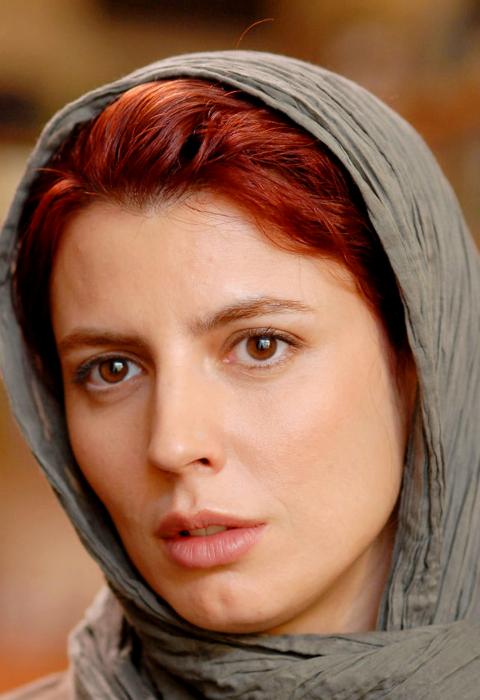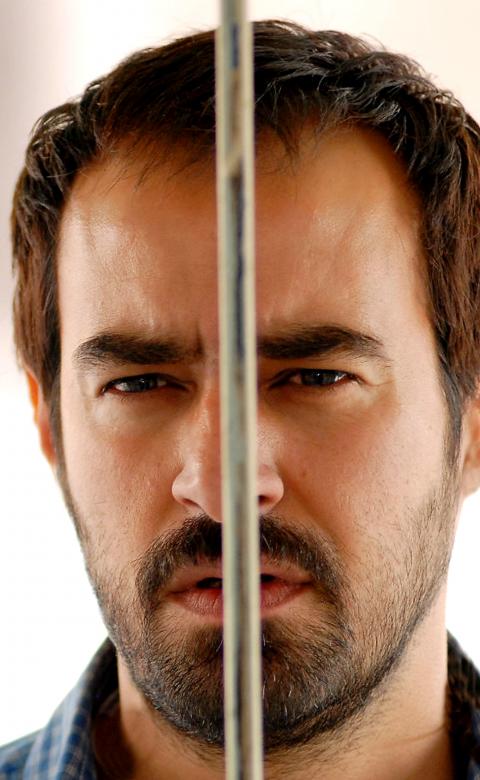A Separation, a tightly structured, emotionally astute new film from Iran, begins with a couple, at odds and in distress, arguing in front of a judge. Simin (Leila Hatami) wants to leave the country with her daughter, Termeh (Sarina Farhadi), and Simin’s husband, Nader (Peyman Moadi), insists on staying at home in Tehran to care for his frail and elderly father, who suffers from dementia and needs constant attention. Quite possibly there is more at issue than practical domestic arrangements — there are hints of suppressed anger in Nader’s demeanor, of long-simmering exasperation in Simin’s — but an Iranian courtroom may not be the best place to discuss intimate marital matters.
Nor, given that country’s strict censorship codes, is an Iranian film. But A Separation, written and directed by Asghar Farhadi (and Iran’s official Oscar submission), does not feel especially constrained. It is a rigorously honest movie about the difficulties of being honest, a film that tries to be truthful about the slipperiness of truth. It also sketches a portrait — perhaps an unnervingly familiar picture for American audiences — of a society divided by sex, generation, religion and class.
The partial split between Nader and Simin is only one of the schisms revealed in the course of a story that quietly and shrewdly combines elements of family melodrama and legal thriller. Because Nader refuses to agree to a divorce or to give the legally required permission for his daughter to travel abroad, he and Simin find themselves at an impasse. She goes to live with her parents, and he hires a young woman named Razieh (Sareh Bayat) to help look after his father.

Photo courtesy of Swallow Wings Films
Razieh, who arrives with her young daughter, has an anxious, plaintive manner, and her apparent unreliability brings minor irritation and then outright chaos into Nader’s life. Before long — and as a result of events I will leave for you to discover — Nader is back in court, embroiled in long arguments with Razieh and her husband, Hodjat (Shahab Hosseini), an unemployed shoemaker laden with debt and seething with resentment, humiliation and angry piety.
The conflict between the two families, which often turns on forensic details and uncertain recollections, is inflamed by social tension. In Hodjat’s eyes Nader and Simin are part of a corrupt and entitled elite, arrogant and irreligious and full of contempt for an ordinary working man like him. And their attempts to be reasonable, compassionate and polite betray an unmistakable condescension, which Asghar Farhadi tacitly endorses by making Hodjat such a brute.
There are moments when the humanism of A Separation feels a bit schematic, as if the characters were pulled from a box of available types rather than painted in the shades of life. But there are also scenes that draw power from the subtlety of the performances, in particular the quiet, watchful portrayal by Sarina Farhadi (the director’s daughter) of a girl who is at once central and peripheral to the drama unfolding around her. Termeh, shy and studious, is desperate to please her parents and terrified that her family will collapse. Her parents, and the audience, continually overlook the intensity of her feelings, which nonetheless pervade the film, along with her unspoken hope that everything will work out in the end.

Photo courtesy of Swallow Wings Films
The outcome is less important to Asghar Farhadi than what leads up to it, and the film is remarkably deft in capturing the petty, cumulative frustrations of modern city life. In addition to their weekly quota of quarrels and brooding silences, Simin and Nader must contend with work (she is a doctor, he has a job in a bank), their daughter’s schooling, Tehran traffic (a touchstone of recent Iranian cinema) and an officious and sometimes chaotic government bureaucracy. Daily life is a cycle of waiting, nagging, negotiating and looking for a place to park, much of it carried out with frayed and weary decorum. Even when everything seems to be falling apart, people try to mind their manners.
Because self-control seems to be, in this setting, both a deeply ingrained habit and a public virtue, eruptions of feeling — some of which come close to physical violence — arrive with special force in A Separation. And they leave a knot of ethical and philosophical questions that may make the walk home from the theater as argumentative as the film itself. Most of the characters’ behavior is viewed with sympathy and skepticism, and the frequent bouts of legal wrangling invite endless interpretation of every aspect of the story. Somehow it is all perfectly clear, and yet at the same time tantalizingly and heartbreakingly mysterious.

June 2 to June 8 Taiwan’s woodcutters believe that if they see even one speck of red in their cooked rice, no matter how small, an accident is going to happen. Peng Chin-tian (彭錦田) swears that this has proven to be true at every stop during his decades-long career in the logging industry. Along with mining, timber harvesting was once considered the most dangerous profession in Taiwan. Not only were mishaps common during all stages of processing, it was difficult to transport the injured to get medical treatment. Many died during the arduous journey. Peng recounts some of his accidents in

“Why does Taiwan identity decline?”a group of researchers lead by University of Nevada political scientist Austin Wang (王宏恩) asked in a recent paper. After all, it is not difficult to explain the rise in Taiwanese identity after the early 1990s. But no model predicted its decline during the 2016-2018 period, they say. After testing various alternative explanations, Wang et al argue that the fall-off in Taiwanese identity during that period is related to voter hedging based on the performance of the Democratic Progressive Party (DPP). Since the DPP is perceived as the guardian of Taiwan identity, when it performs well,

The Taiwan People’s Party (TPP) on May 18 held a rally in Taichung to mark the anniversary of President William Lai’s (賴清德) inauguration on May 20. The title of the rally could be loosely translated to “May 18 recall fraudulent goods” (518退貨ㄌㄨㄚˋ!). Unlike in English, where the terms are the same, “recall” (退貨) in this context refers to product recalls due to damaged, defective or fraudulent merchandise, not the political recalls (罷免) currently dominating the headlines. I attended the rally to determine if the impression was correct that the TPP under party Chairman Huang Kuo-Chang (黃國昌) had little of a

At Computex 2025, Nvidia CEO Jensen Huang (黃仁勳) urged the government to subsidize AI. “All schools in Taiwan must integrate AI into their curricula,” he declared. A few months earlier, he said, “If I were a student today, I’d immediately start using tools like ChatGPT, Gemini Pro and Grok to learn, write and accelerate my thinking.” Huang sees the AI-bullet train leaving the station. And as one of its drivers, he’s worried about youth not getting on board — bad for their careers, and bad for his workforce. As a semiconductor supply-chain powerhouse and AI hub wannabe, Taiwan is seeing